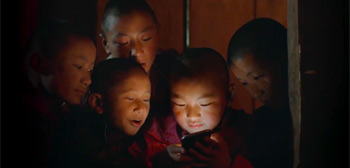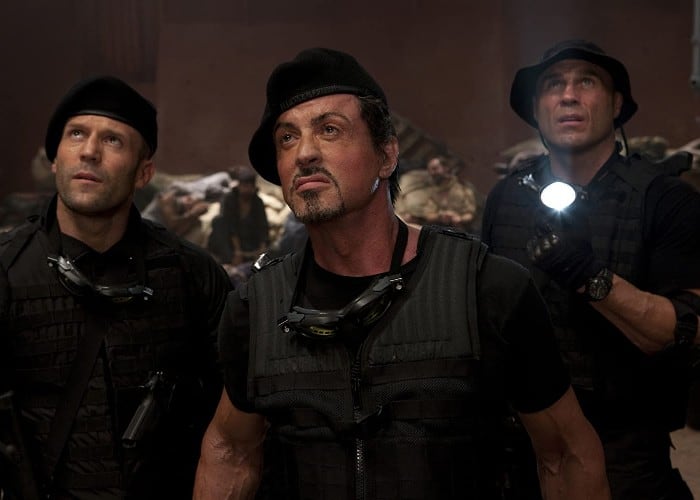Sundance 2021: MARVELOUS AND THE BLACK HOLE and LAND
The following two reviews come from first time feature film directors, which seems to be a trend at this year’s Sundance Film Festival. Both Marvelous and the Black Hole and Land capture the intricacies of grief, with Kate Tsang and Robin Wright, respectively, tackling rather difficult subject matter in very different ways. There isn’t one correct formula to telling a story, no matter how similar they might be, and both these films offer a unique perspective on how and why we grieve.
Marvelous and the Black Hole (Kate Tsang)
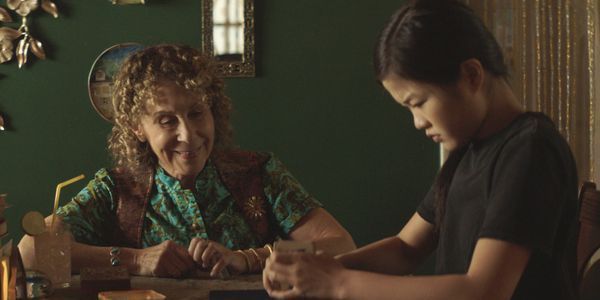
In her feature directorial debut, Marvelous and the Black Hole, Kate Tsang has created a tender examination of grief through the lens of a 13-year old child. The film hovers around the imaginative nature of childhood, but never flinches away from the serious nature of the narrative, and handles the concept of lived grief with maturity. This is a striking debut from a promising filmmaker.
The film follows Sammy (Miya Cech), a troubled teenager who seems to be at odds with the world ever since her mother passed away. She ends up meeting Margot (Rhea Perlman), a spirited local magician with whom she forms a surprising connection. Sammy begins to invest more of her time into magic and finds a way to transform her sadness into fantastical creativeness. The film is wrapped with a supporting cast that includes Leonardo Nam, Kannon and Paulina Lule.
For a film that comes from the mind of an Asian American, and features a prominent Asian American cast, its narrative actually sways away from the usual cultural issues we tend to expect from stories of this nature. Sure, there are inferences of Asian culture written into the screenplay, but Sammy’s story is fairly universal. The emotional boundaries are such that the characters happen to be Asian, but this in no way (exclusively) defines the identity of the Tsang’s creative voice. And when it comes to representation, having a seamless narrative that feels inherently universal, particularly on an emotional level, is grossly empowering.
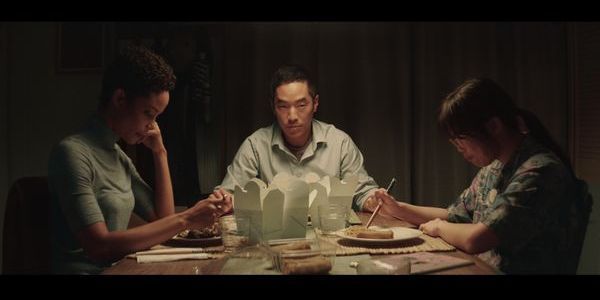
As expected, Perlman brings gravitas to the screen as Margot, with Cech holding her own in what is certainly a breakout performance. It’s also refreshing to see Nam, a veteran in the industry, tasked with playing such a nuanced character. His portrayal of a grieving father who is doing his absolute best in the face of an impossibly difficult situation is rather subtle, but nevertheless heartbreaking.
Tsang also demonstrates her command for balancing imaginative buoyancy with serious undertones. Marvelous and the Black Hole never unwraps from its dissection of grief, but still offers a joyous backbone that serves its narrative well. The film will leave you feeling emotionally fulfilled and is a poignant example of how magical cinema can be.
Read our interview with director Kate Tsang here!
Land (Robin Wright)
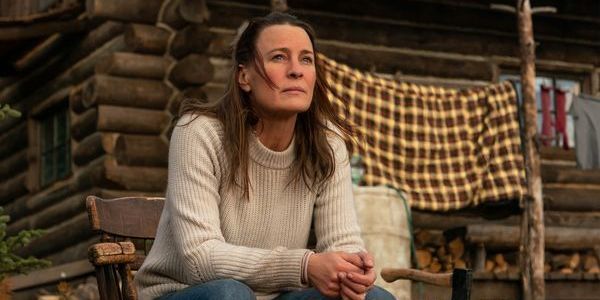
Robin Wright has long been considered one of the most versatile actors working in Hollywood, and like many thespians before her, has decided to test her creative range as a director. Having previously worked as a director on a short film (The Dark of Night) and multiple episodes of Netflix’s House of Cards, Wright makes her feature directorial debut with Land. This is a film that hits many of the emotional notes one might expect from a story anchored on persevering a personal tragedy, but is, unfortunately, a bit stale in its stylistic choices. Land is a somewhat underwhelming first outing for Wright as a director.
Following the death of her husband and child, Edee (Wright) decides to leave the city and relocate to a cabin out in the wild. She severs all connections with the outside world by throwing away her phone, returning her car, and relying on nothing more than a few outdoor self-help books. Not surprisingly, her outing is marred with difficulties, which culminates in a near-death experience one winter evening. She’s brought back to form by Miguel (Demián Bichir), who seems to be a fractured soul himself, and offers guidance to Edee on her isolated journey.
There’s nothing inherently bad about Land, but there’s also nothing overly interesting either. Wright’s direction feels a tad bit underwhelming, and most of her creative choices seem to exude an arbitrary flavour. There’s a sense that audiences are simply watching from afar, as opposed to being entrenched in what is clearly an emotional story. What results is a narrative experience that feels somewhat disconnected, when it should really feel engrossingly intimate. Certain exchanges between Wright and Bichir are still effective, but this is more a testament to their performances, rather than the film’s own creative integrity.
And to that end, the performances in Land, primarily those of Wright and Bichir, are expectedly sharp. This is certainly not surprising and should be enough to keep most viewers engaged. The film’s cinematography by Bobby Bukowski is also quite sharp, creating a vastness that matches the emptiness of Edee’s emotional wellbeing. The screenplay itself never meddles in any truly melodramatic territories but is perhaps also more restrained than it needed to be.
Land has some good moving parts, but simply did not come together in a manner that evoked the type of creative inspiration one might expect. Wright doesn’t seem to do the film justice as a director, but as expected, fails to disappoint as its lead actress. This is still a valiant first effort as a feature film director, albeit, an underwhelming one.
Does content like this matter to you?
Become a Member and support film journalism. Unlock access to all of Film Inquiry`s great articles. Join a community of like-minded readers who are passionate about cinema – get access to our private members Network, give back to independent filmmakers, and more.
Join now!
